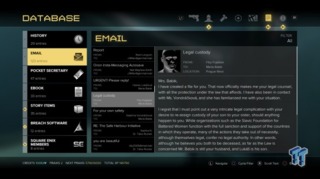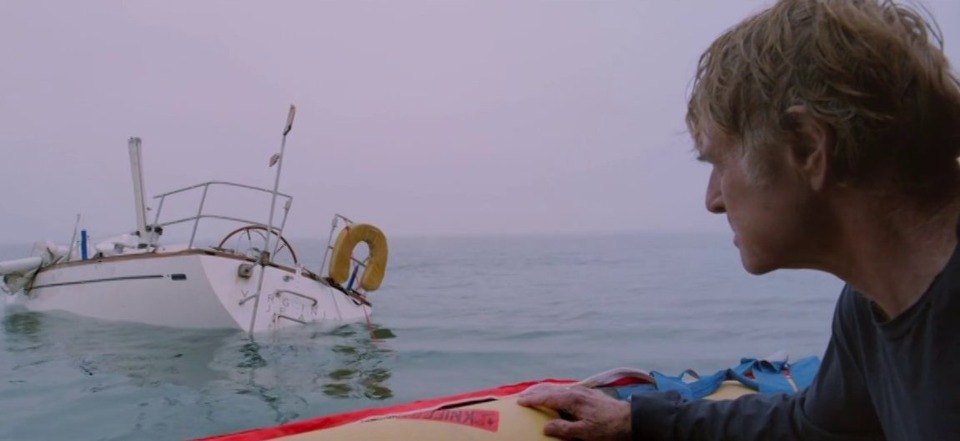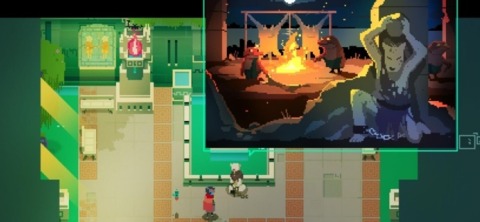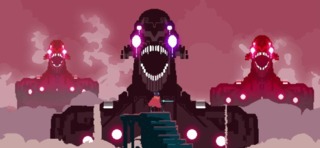You say it best, when you say nothing at all
By kmfrob 9 Comments

There came a point a few months back - about 75% of the way through the campaign - where I put down Deus Ex: Mankind Divided and never picked it up again. I did this, not because it was a bad game particularly, but because I felt fatigued. Fatigued at what aspect I wasn't sure, but I simply couldn't bring myself to navigate a single air vent more than I already had. The game was beating me down and any enjoyment I had felt towards the start had long since vanished. I closed the game and felt a surge of relief that it was all over.

It wasn't too long after this that I found myself staring at the 'Buy Now' button on the Final Fantasy XV page on the PlayStation Store. For those that know me or have read previous entries on this blog, you would understand that the release of a Final Fantasy game is a sacred day in my calendar. Despite not always loving the games themselves, I hadn't missed the release of a single main series entry since I bought Final Fantasy VII back in 1997. But this time, I wasn't sure. I just couldn't bring myself to part with my hard-earned pounds. With the game receiving generally favourable reviews, this reticence was something I struggled to understand. Wasn't this entry a return to the glory days of the series? Hadn't it made major strides towards combatting the problems of XIII and all its mind-numbing linearity? By all accounts it had and yet still my finger wouldn't make that final push. I gave it a few minutes and then, still no closer to making a decision, closed the store page and bought Nuclear Throne for the Vita instead (a much easier purchase at a much more friendly price point).

Later that day, me and my wife decided to sit down and watch J.C. Chandor's All Is Lost with Robert Redford, a film about one man's battle for survival as his solo-piloted yacht slowly sinks into the depths of the Indian Ocean. Despite clocking in at a little over two hours, nothing but a few incoherent mutterings are ever spoken by Bobby (the one and only actor) throughout the entire run-time of the film. And yet even with this distinct lack of dialogue, the story is coherent, the drama is taut, the character is fleshed out, and the emotional impact is strong. I know nothing about manning yachts, fixing holes in fibreglass hulls or fixing busted radios, yet I was able to understand immediately what was happening and follow Redford's plan to try and solve the issues at hand. I may (will) never desire to one-man a boat out into the middle of an ocean filled with sharks and stuff, but I was able to understand his sense of adventure and appreciate the tranquillity such a journey brought him. I'm not going to claim the film is perfect (you need only see the many angry sailors who have reviewed the film on IMDB to find out why), but it was a very entertaining and, as I came to realise, it entertained precisely for the very reasons why Deus Ex didn't and Final Fantasy XV probably wouldn't have.
You see, what All Is Lost taught me was that sometimes you didn't need a lot of words to tell a lot of story. The film's success (for me at least) was its ability to convey a great deal without ever resorting to exposition and deep and binding lore. In Deus-Ex, I was happy enough with the gameplay, but what I had dropped out on (pretty much from the start as it turned out) was its story and how it was told. Right from the get-go, the story is told to you through the medium of narrated cut-scenes, character monologues (masked as dialogue with Jensen) and page upon page of emails, text messages and e-books. Technological terms, government factions, non-government factions, names, places, grievances… all of them were thrown at me in the hope that over time some of them might stick and make me care enough about what was happening to keep playing. But the problem was, I had stopped caring before I had even taken control of Jensen. There was just too much story and background to get to know. I just have enough on my plate trying to keep up to date with real-world happenings to care about the Deus-Ex universe. The game may be trying to address real-world discrimination and terrorism by allegorising it into a tale of synths and humans, but frankly it all left me feeling a little flat.
Equally with Final Fantasy XV, the reason for my hesitation in buying the game was not because the game lacked on a technical/gameplay level (which apparently it doesn't), but because all those trailers I watched beforehand featured the same problem as Deus Ex…i.e. story being forced into you in massive chunks of dialogue and text. Being a supposed fan of Final Fantasy you might well rightly question what I expected given that is precisely what the series is known for, but I am also no longer a teenager and prepared to put up with such things.


If I think back to the games that I have enjoyed in recent years, many of them are wordless (or nearly wordless), and I think part of that is because they didn't insist on using a battering ram to impart narrative and purpose. Take Hyper Light Drifter, a game in which there is an explicit lack of words and in which story is told pretty much entirely via the visuals, art and music. I came out the other end of that game with the very real sense of "knowing" its world and its history. That "knowing" may be vague and hazy, but equally it was visceral in a way in which Deus Ex: Mankind Divided never was. This wasn't achieved in spite of the lack of words, but precisely because of it. I wasn't told the story, I was left to experience it.
Of course, I'm not saying that all games should be wordless, that would be ridiculous. But there is a happy medium which can be achieved. Naughty Dog are a great example of how to do this, with their games often striking that balance between dictated narrative and environmental storytelling. However, they are not alone. Valve are another one who have proven their ability to link in great writing with great gameplay. Be it the abandoned farmhouse in Half Life 2 with its walls smeared with warnings/laments in blood, or the hidden rooms beneath the facility of Portal that spoke to the seeming absence of others, these little touches added more to their worlds in one glance than ten minutes of contrived fictional political intrigue dialogue ever could.

Of course, this is all entirely subjective, and I understand that there are probably many out there that enjoy immersing themselves in these fictional worlds, but for me, I am tired of such tropes. I also do appreciate the irony that my writing is very much of the verbose persuasion and as such I am in no position to be telling others to write less not more, but hey I have a blog to write! I think ultimately, what I am looking for, is for game developers to place a little more trust in their audience. The best games have interesting worlds, not interesting stories. Let us live those worlds. Let us see the worlds you create rather than pushing us through them. Let us learn your story rather than telling it to us. As in all great works of fiction, it is intimacy that comes before engagement. If I don't feel I understand your world on a personal level, then I am much less likely to understand your story on a personal level.
